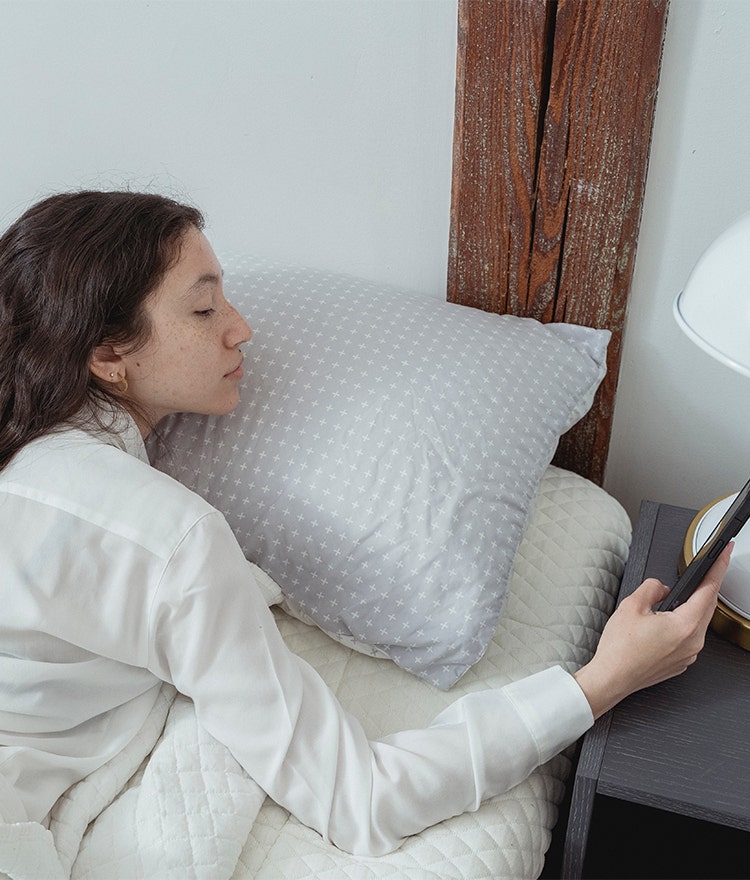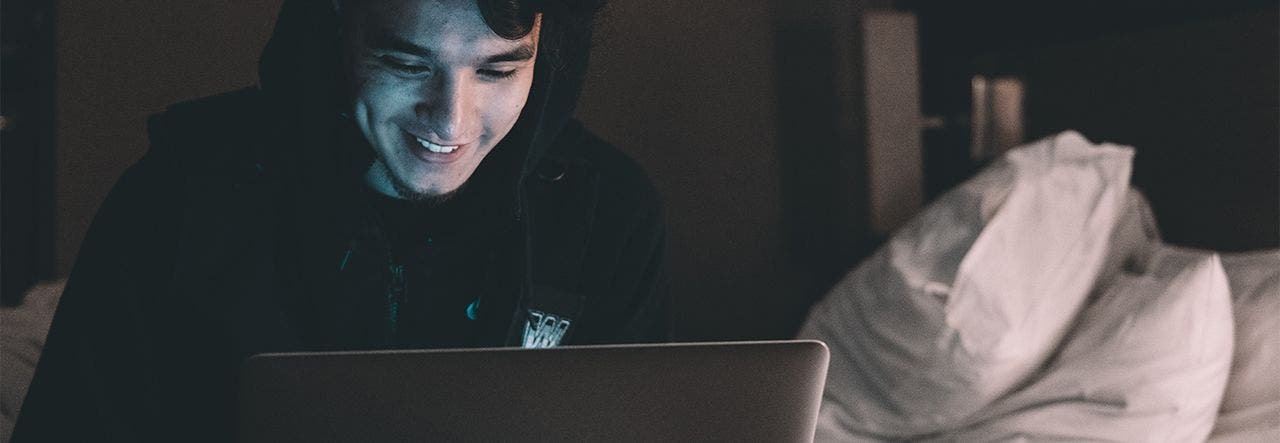Back to school season is upon us! For college students, that means many things – Greek life, dorm rooms, tailgating, spring break, finals week and so much more. It’s easy to see why sleep is often a last priority for the average college student. With jam-packed social lives and heavy academic demands, healthy sleep and college students often don’t mix well.
But sleep is essential for everyone, whether you’re a student or not. Although sleep suffers in college, there are helpful tips you can implement to make sure you still get adequate rest despite the pressures of college life.
Why does sleep suffer so much in college?
Sleep often suffers significantly during college years due to a combination of academic, social and lifestyle factors.


Academics
Tight deadlines, constant assignments and rigorous exams can create a sense of pressure that leads students to sacrifice sleep in order to meet their study goals. (We’re all guilty of pulling an all-nighter at least once in college to study, right?) Additionally, the misuse of prescribed or nonprescribed stimulant drugs that students use to stay awake and study or improve concentration is a growing concern.
Social factors
With newfound independence and social opportunities abound, college life can lead to irregular sleep patterns when students engage in late-night socializing, parties and extracurricular activities. Factor in consuming excess amounts of alcohol, energy drinks, caffeine and the overall poor diet that any student can relate to, and you’ve got a recipe for sleep disaster.
Lifestyle Factors
The prevalence of electronic devices and screen time as a college student further disrupts sleep patterns. Today, most course work is done online, and books are becoming a thing of the past. Students often stay up late researching, studying or completing assignments online, which means lots of late-night blue light.
And don’t underestimate that stress and adjustment to a new environment can also contribute to sleep disturbances. Most college students lack a private space of their own and often share their sleep space with other students. This can be a massive adjustment from home life, leading to sleep disturbances.
Effects of sleep deprivation on college students
The cumulative effect of the above factors can result in chronic sleep deprivation, negatively impacting students' overall well-being, cognitive function and mental health. Persistent sleep deprivation can impair concentration, memory consolidation and critical thinking, ultimately undermining academic performance resulting in unsatisfactory grades and overall GPA.
Moreover, it jeopardizes emotional stability, contributing to heightened stress, anxiety and even depression. Physiologically, sleep deprivation disrupts metabolic equilibrium, weakening the immune system and increasing susceptibility to illness which runs rampant on college campuses.
6 Tips for getting better sleep in college
Recognizing the importance of healthy sleep habits and implementing strategies to prioritize sleep is crucial for college students to thrive both academically and personally. Here are some helpful tips to better promote healthy sleep habits among college students and safeguard their holistic well-being during an exciting yet strenuous time.


1. Maintain a regular wake and sleep time
Try to keep to a regular sleep schedule, even on the weekends. Don’t vary your sleep and wake times by more than two hours, even on days where you might not have classes until 2 p.m. Although it can be tempting to sleep in or stay up late in college, a consistent sleep schedule is everything.
2. Watch what you consume
Avoid consuming alcohol, coffee, energy drinks, stimulants or heavy meals at least six hours before you go to bed.
Alcohol may make you feel sleepy, but it negatively impacts sleep quality causing you to wake up tired (and anxious, too!). On the other hand, caffeine may make you feel awake, but consuming too much or too late in the day can make it hard to sleep, leading to sleep deprivation and, well, more coffee the next day!
3. Keep electronics out of your bed
Avoid the use of electronic screens (phone, laptop, tablet, desktop, etc.) and exposure to blue light at least thirty minutes before going to sleep. If prolonged, late-night screen time is unavoidable, invest in some blue light glasses or switch your displays to night mode to mitigate any negative effects.
4. Incorporate sleep and sound tools
College isn’t always the quietest environment. Groundbreaking, we know. This is especially true if you share a space with a roommate or stay in a dorm, fraternity house or sorority house. Try using ear plugs, an eye mask, a white noise machine or the hum of an air purifier to cancel out any disruptive sounds that may disturb your sleep.




5. Exercise regularly and move daily
Moving your body, even for just 30 minutes each day, can improve your health … and your sleep! Regular exercise makes it easier to fall asleep at night. Just be sure to avoid exercise at least three hours before bed.
6. Create a bedtime routine you look forward to
Scheduling time to wind down and decompress before bed helps to prepare your brain and body for sleep. This should consist of relaxing activities, like reading, journaling, deep breathing or a nighttime skincare regimen you love. Try to avoid using your phone, TV or computer during this time, and simply tune in to your body, mind and spirit.
A cleaner, comfier sleep space helps, too!
One of the best tips we have is to create a sleep-friendly environment and make your sleep space your sanctuary. Make your bedroom a safe space for sleeping by setting boundaries with where you study, socialize and eat.
This obviously may look a little different when you live in a dorm, but help yourself in small ways. Do your homework at your desk rather than on your bed. Socialize in common areas instead of in your room. Try to keep things neat and tidy during the day and dark and cool at night.
Happsy is here to help, too. Whether you’re shopping for sheets, protector pads or toppers to spruce up your dorm room (and more importantly, your dorm mattress) or mattress shopping for your very first apartment, we’ve got affordable, certified organic and non-toxic sleep essentials to get you through the tired college years.
By taking active steps to promote healthy sleep despite uncontrollable circumstances, healthy sleep can soon become your norm – even on a college campus
 BABY
BABY  KIDS
KIDS  ADULT
ADULT  LEARN
LEARN  STORES
STORES 